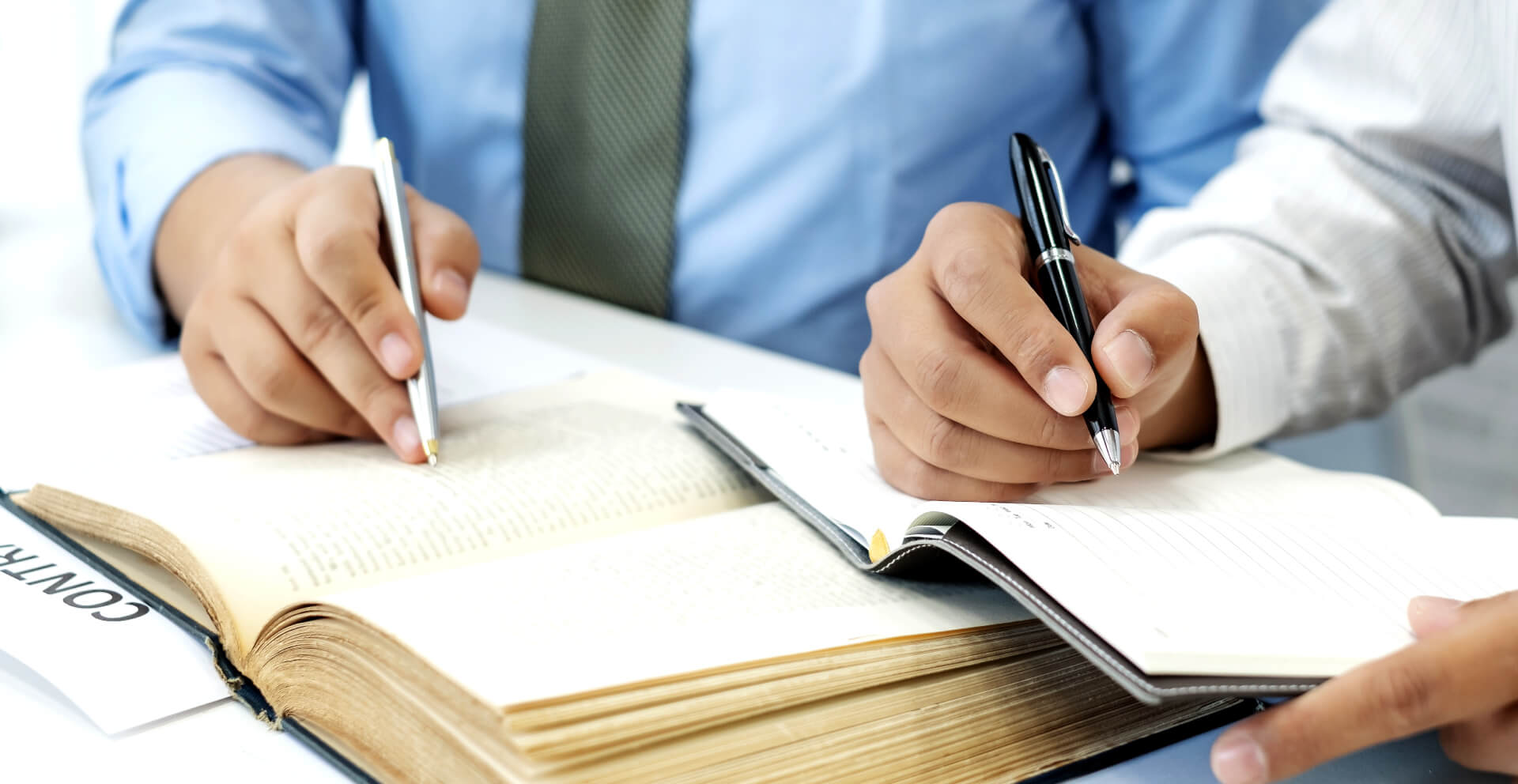
Trusts can be a mystery to many people, often with a notion that they promise unlimited benefits for estate planning and asset protection purposes.
If you are concerned about protecting the wealth you’ve built up today so your loved ones are supported tomorrow, setting up a trust can secure your assets for them from the moment it’s established.
A trust ensures they receive the financial support you intended for them under the responsibility of a reliable trustee (or trustees) of your choosing. Creating a trust is one of several options available as part of estate planning.
Taking steps today to clarify how your assets should be managed when you pass away makes your wishes clear to loved ones in the future, and allows you to apply solutions to limit the amount of Inheritance Tax and further hassle they have to endure during an already emotional time.
We have provided a helpful guide to trusts and estate planning below, providing valuable information for supporting those who matter most to you now and in the future.
Since 1997, our talented team of trust solicitors have helped hundreds of people secure millions in assets for their chosen beneficiaries.
This team is led by Managing Partner, Melinda Giles. Council Member for Private Client Solicitors at The Law Society, Melinda’s extensive history in this area of law makes her an authority in navigating any complications associated with setting up a trust.
She is supported by an incredible collection of STEP-qualified solicitors with impeccable knowledge of trusts and estate planning. Together, we find solutions that ensure your loved ones receive the financial support you intend for them.

Looking for advice on the different types of trusts available to you? Need help managing or administering an established trust? Or are you facing a dispute between trustees and beneficiaries?
Whatever your request or issue, we treat your situation with the individual care and attention it deserves, finding the ideal resolution for your objectives.

If you are looking to protect your financial legacy and your loved ones' futures, we can help you create the trust that's right for you. View our complete range of Trusts services below.
Established in 1997, the Giles Wilson team operates from offices in Leigh-on-Sea, London Road and Broadway, alongside our central London base in Holborn. These well-connected locations allow us to support clients throughout London and South East Essex.
Our award-winning team of friendly, conscientious and accredited legal professionals make you feel comfortable from the very first consultation. Representing a diverse range of backgrounds and experiences, our combined knowledge and expertise ensures we can handle any and all of your legal requirements.



A trust is a legal agreement where one party (the settlor) gives responsibility for their money and assets to another party (the trustee) in order to eventually benefit a third party (the beneficiaries). Essentially, it takes this amount of money or assets out of the hands of the original owner to be securely held for someone to receive at a later date, making it a core component of estate planning. In addition, a trust can also be set up within your will.
As such, a trust gives you control over your assets and who they benefit in the future. If you want to ensure part of your financial legacy will be secured for the benefit of a particular person or group of people to access at a later date, or within certain controls, such as for young children or a family member with learning difficulties, a trust is a strong layer of security to protect your loved ones’ futures.
A trust also keeps these assets away from people you don’t want to access your estate when you pass away, either by contesting your Will or if you die intestate. When the trust is made, the assets within them are no longer the possessions of the settlor.
Instead, these assets can be secured solely for the beneficiaries you have outlined in planning your trust. If you are keen to protect the future of your loved ones or other beneficiaries, speak to a trust solicitor to begin the process of setting one up.
A Trust Deed is the document that establishes the trust, and is executed by the settlor (although the settlor doesn’t necessarily have to write it). Within the Trust Deed you can include conditions that the beneficiaries must fulfil to receive the assets they’ve been provided in the trust, but these conditions must be legal and certain.
That is why having your trust drafted by an experienced solicitor is crucial as they will help you ensure the conditions you place are legal, so they are not voided at a later date. A Trust Deed is not always required when another Trust Instrument takes its place. For instance, setting up a trust in a Will (a Will trust) ensures that part of your estate is transferred to a trust when you pass away.
As a general rule, trustees are bound to follow the wishes of the settlor as set out in the trust. However, there are circumstances where alterations can be made both with and without the assistance of the courts. This is referred to as the Variation of Trusts.
If you would like to learn more of the criteria for making variations down the road, our specialist trust solicitors will be able to provide further insight before setting up your trust.
In most scenarios, there are three roles involved in a trust:
The settlor is the original holder of the assets that comprise the trust. When planning the trust, the settlor transfers legal ownership of the assets and trust to the trustee, and from the moment the trust is finalised those assets are no longer the settlor’s possessions. The settlor also decides who the trustee(s) and beneficiaries are, whose duties for managing the trust are defined in law.
The trustee is the gatekeeper to the settlor’s money or assets in the trust, and who is responsible for ensuring they are passed onto the beneficiary per the conditions of the trust. There can be up to 4 trustees in charge of a trust, who must work together to manage it, and there must be a minimum of 1 trustee. It is the trustee’s / trustees’ fiduciary duty to manage the trust day-to-day and pay any tax due, as well as decide how the trust’s assets will be invested or used before they are passed onto the beneficiaries.
The beneficiary is the intended recipient of the assets contained in the trust at a date and time specified by the settlor. There can be multiple beneficiaries listed in the trust, and the beneficiaries can be people (e.g. family members), entities (e.g. charities) or something else (e.g. pets). The beneficiary may receive the income or the capital contained in a trust, or both, depending on the terms specified by the settlor.
It is possible for the settlor or the trustee of your trust to also be the beneficiary, but in most scenarios there will be three separate parties.
Regardless of the role you find yourself in, speak to our dedicated trust solicitors for advice on managing your responsibilities and how to eliminate the risks involved with each.
The assets held within a trust, also referred to as trust property, can include a wide range of items, including:
So, if you wish to put a house in a trust, or support someone to live in that home rent-free for the remainder of their life, it is possible to do so.
An experienced trust solicitor can advise you on what assets can and can’t be included, and guide you to which type of trust would be best suited to securing these assets.
Capital in a trust is any asset that trustees receive when the trust commences, such as property, land, money and investments, as well as the growth that accumulates on top of the original capital asset.
Income in a trust is generally the regular returns generated by a capital asset, such as dividends paid to company shareholders or rent on the letting of property.
For trust purposes, Income Tax is payable against the income contained within a trust, while Capital Gains Tax or Inheritance Tax will be payable from the trust’s capital.

There are numerous situations where you might wish to tie up some of your assets in a trust as opposed to holding onto these for the remainder of your lifetime and passing them along in your final wishes.
For example:
Regardless of the reason behind your decision to start your trust planning, talking to a specialist trust solicitor will help you understand and establish the ideal structure to protect the future of those you care about.

There are many different types of trusts you can create to support a range of estate planning solutions, which can be overwhelming to look through if you have no experience in trust planning. That makes the support of a trust solicitor helpful in determining the right trust for your situation, ensuring it acts in the way you anticipated to best support your beneficiaries in their lives.
For instance, are you looking for a trust that runs indefinitely (a lifetime trust), or one that activates at a certain point in time (e.g. when one of your children turns 18)? It is important to establish time conditions within your trust so your trustees can support your beneficiaries per your wishes.
One type of trust is an express trust, which is where the settlor establishes or creates the trust. However, there are examples of trusts that can be imposed by law, including:
Other trust types depend on the features and elements they present:
The main types of express trust include (but are not limited to):
A bare, simple or absolute trust is the most basic type of trust, often used to pass assets to young children when they reach the age of 18 in England and Wales (16 in Scotland). The trustee takes care of the assets on behalf of the beneficiaries, who are then able to access the income and capital within them as soon as they reach adulthood. In typical cases, a beneficiary can’t be changed once a bare trust is set up, and the trustee will not perform any active duty.
An interest in possession or life interest trust is where a beneficiary is entitled to the income/benefit of the trust, minus any expenses. An example would be to place your shares in a company in a trust, and when you pass away the income from these shares is divided between your children. These trusts can be used to ensure a loved one retains a steady stream of income when you pass away, to keep your estate with your family or to cover the cost of care home fees.
A discretionary trust is when a trustee will make the decisions about how to use the trust income and capital. These decisions may include what gets paid out of the trust, what beneficiary is paid, how often payments are made and any conditions the beneficiaries must fulfil to access the trust. These types of trust could be used to support beneficiaries that aren’t able or responsible enough to look after the assets, or if a beneficiary presents a more pressing need for the assets at a later date.
An accumulation trust is where a trustee can accumulate the income created by a trust and add it to the trust’s capital instead. They may also be able to pay income out to beneficiaries as well.
A mixed or hybrid trust is one that incorporates several characteristics of other trusts into one. For example, some of the assets might be held under an interest in possession trust, while others fall under the terms of a discretionary trust. This means that each distinct element of the trust is treated according to the tax rules that apply to that segment.
A settlor-interested trust is where the settlor is also the beneficiary of the trust. These are used when the settlor feels they might require financial support in the future. For example, if you are no longer able to work due to illness, you might create a trust you can access in later life to support your living expenses.
A non-resident trust is where the trustees are not resident in the UK, usually for tax purposes. The tax regulations related to this type of trust are especially complicated, so we would advise you don’t pursue one without clear guidance from an experienced trust solicitor.
A charitable purpose trust is one that is created for a charitable purpose. These purposes can be the relief of poverty, the advancement of education, the advancement of religion or something else that is beneficial to the community. These types of trust often have the lowest tax bands associated with them.
A non-charitable purpose trust is where the beneficiary of the trust doesn’t fall under any of the four reasons listed above, but they are not necessarily an ascertainable individual. An example of this type of trust would be one created to support the maintenance of a tomb or to care for the settlor’s animals.
It is important to note here that these different trust types can often overlap when setting up your own trust, confusing the picture even further. In addition, different trusts are subject to different tax regulations. Again, working with a professional trust solicitor helps clear up the situation and establish the right type of trust for your situation.
You can set up a Property Trust Will in order to hold your share in the property you own at the time of your passing in a trust for your children and other beneficiaries, while your surviving partner can continue to live in the property for the remainder of their lifetime.
An advantage of a Property Trust Will is that, even if your partner chooses to remarry or enter a civil partnership following your death, the value of your shares of your property is protected for your beneficiaries to claim when the conditions you set are fulfilled.

The legal wording when setting up your trust has to be incredibly precise. It is highly recommended that you speak to a qualified trust solicitor to guide you through every aspect to ensure your trust is legal, secure and fulfils the purpose you intended for it.
Trusts must be written with the Three Certainties in mind. This establishes that the settlor is certain about the intention (they must want to create a trust), the subject matter (they must know of the assets contained in the trust) and the object (they must be clear on who the beneficiaries are).
This means that you can incorporate a variety of conditions, beneficiaries and other factors in a trust as long as they’re legal and certain - there cannot be anything that is considered ambiguous or open for interpretation. For example, your trust cannot say its assets will only be accessible to all grandchildren born with brown hair at a later date. This is because what you consider to be brown hair could vary significantly from someone else’s view.
You must be particularly careful choosing your trustees when setting up a trust. The responsibility of managing a trust can be challenging depending on the complexity of the trust and the trustees’ role in supporting the beneficiaries.
Typically a trustee is a family member or close friend you can rely on. It is also advised to assign multiple trustees (between 2 and 4) to ensure there will be somebody to manage the trust on your behalf if one of the trustees becomes incapable of doing so. For irrevocable trusts in particular, this is an important aspect to consider.
It is also possible for a trust solicitor or a firm of solicitors to act as your trustee if you wish. This is a good option as they will have a stronger understanding of the complexities surrounding trust law and estate planning, helping ensure the responsibilities surrounding your trust are always met.
Yes - setting up a trust in your will is possible if you specify this within the documentation. If you do this, when you pass away the assets that you have designated form the trust, and the trustees assigned to look after this assume responsibility on behalf of your beneficiaries.
If you would like to include the setting up of a trust when preparing your will, your solicitor can help you choose the right terminology to ensure your wishes are fulfilled.
Yes. It is possible to create a trust for a hypothetical scenario, such as for any future children or grandchildren you have. As long as the trust follows the rules regarding certainty and you have accounted for if this hypothetical situation does not happen, you can create a hypothetical trust.
However, it is also important to keep in mind the Rules Against Perpetuities. This is a complicated regulation, but in essence these mean that a trust cannot be created with conditions that last forever. There must be a clear endpoint and class of beneficiaries which is in no way vague for a hypothetical trust to be considered legal.
Again, to ensure the wording of your trust, hypothetical or otherwise, is not in breach of the rules relating to perpetuity, speaking to a specialist trust solicitor helps to ensure the terms of your trust are legally secure and your assets are protected on behalf of your beneficiaries.
There is no hard-and-fast answer to the cost of setting up a trust - it depends on the solicitors you work with and the length of time it takes to get the details of the trust finalised.
It is possible to draft a trust without the guidance of a solicitor, but this initial saving can result in costly mistakes down the line. If the wording of the trust proves not to be legally correct, is misleading or is too vague, it could invalidate the trust and mean your wishes for your assets or your beneficiaries are not met and, importantly, could also result in serious tax consequences for all parties.
There are charities that can contribute to alleviating the cost of setting up the trust for parents in cases where the beneficiaries are their disabled children.
Depending on the type of trust you’ve established, it will likely be subject to one or more of the following:
It is the trustee’s responsibility to ensure all of the tax obligations of the trust are paid when due, and that the trust is registered with HM Revenue & Customs, with all relevant information.
Therefore, as well as receiving legal advice when creating a trust from an experienced solicitor, it is just as important to get tax advice from a professional to ensure all obligations are met and you or your trustees are never found liable for failed tax payments.
As a trustee, once you have informed and registered the trust you’re responsible for with HM Revenue & Customs, you must report the income and capital gains the trust receives at the end of each tax year in a Trust and Estate Self Assessment Tax Return. This will determine how much tax you are required to pay through the trust.
To ease this burden, it is advised to speak to HMRC or work with an accountant or a solicitor to ensure all relevant information is included in the tax return by the required deadlines. If you are registering a trust for a disabled beneficiary, it is essential to seek specific professional advice.

Acting as a trustee is a legal responsibility, and therefore it is important to be aware of how to perform the role while avoiding liability. Advice from an experienced trust solicitor can be extremely helpful in keeping you protected from any liabilities.
Above all else, your responsibility as a trustee is to act in the best interests of the beneficiaries of the trust, known as your fiduciary duty. Your obligations and restrictions will be detailed in the Trust Deed. If you do not perform your fiduciary duty or breach the terms of the Trust Deed, you could be liable.
It is the responsibility of the trustees to ensure that all debts and tax liabilities are settled. If trustees do not deal with these, they might be found liable.
Depending on the type of trust, it might be subject to Income Tax, Inheritance Tax or Capital Gains Tax. As the trustee, it is your duty to report the details of the trust to HM Revenue & Customs, and ensure all necessary tax payments are made from the trust.
If you are considering accepting the role of a trustee, we advise speaking with a dedicated trust solicitor who will be able to guide you through your various responsibilities so you can determine whether you’re willing to take on this role, and that you’re never left liable for any mistake or wrongful action.
If one (or more) of your trustees retires or is no longer able to manage your trust, it is important to seek specific advice on from an experienced trust solicitor.
The course of action you take will depend on a number of circumstances, including how many trustees there are, the situation with the beneficiaries and the terms of the trust. Speaking to an expert helps ensure that if someone no longer wants to manage your trust, or is no longer capable of doing so, your trust stays secure.
If you’re concerned about how your trust is being managed by the chosen trustee(s), it may be possible to remove them from their position. However, this is never straightforward.
Contained within your Trust Deed, you might have placed rules or conditions for your trustees that, if they are in breach of, allow you to remove them. You might have also passed that responsibility onto your other trustees. In addition, the duties of a trustee are set down in law. Working with a trust solicitor helps to ensure that this caveat is included to ensure any issues that arise are swiftly dealt with.
If you are a beneficiary seeking to remove a trustee from their position, you will likely need to apply to the court, who will then determine if their removal is in the best interests of the beneficiaries.

Estate planning is documenting how you would like your estate to be managed when you pass away, and the steps you take to reduce the value of your estate by gifting or arranging assets during your lifetime.
This is often something we’d rather not think about while we’re still alive. But taking control of your estate planning now can be an incredible support to your loved ones when you’re no longer around, so they understand how to arrange your affairs in line with your wishes.
Creating a plan for your estate following your death ensures the person who applies for probate has a clear idea about how to manage your estate and pass it on to your loved ones.
Estate planning solutions can also help to protect your family, friends and any other beneficiaries in your will from the impact of Inheritance Tax (IHT). IHT is a tax that is paid following a person’s death based on the value of the estate they leave behind, and this must be paid (at least in part) before the beneficiaries can access their inheritance.
There are numerous steps you can take during the preparation of your will to reduce the amount of IHT your loved ones face when you are no longer around, such as:
If you are seeking to reduce the IHT owed as part of your estate planning, it is important to speak to a solicitor who will be able to guide you through the various options available to you, and what conditions must be met before you can limit the amount your loved ones are required to pay.
Planning a trust and setting one up can play a role in the amount of Inheritance Tax your beneficiaries must pay when you pass away. As the assets held within a trust when it’s set up no longer belong to you (the settlor), those assets may no longer be considered part of your estate, and therefore won’t be considered when calculating IHT.
Of course, it is crucial that you speak to a trust solicitor if you intend to create a trust to help limit the amount of IHT your loved ones pay when you pass away. This is to ensure that the timing and conditions surrounding your trust mean that the assets aren’t still considered part of your estate at the point of your passing. For instance, in a typical bare trust, the assets within this are only exempt from IHT if the settlor survives for seven years after transferring them to the trust.
Furthermore, good estate planning advice will inform you if establishing a trust is a good course of action in your situation. In some circumstances it might be better for you not to use a trust for this purpose - remember, the money held in a trust is subject to its own tax requirements.
In addition, depending on the type of trust you create, it could need to follow its own set of IHT payments. These circumstances are detailed on the Gov.uk website, but the instances where IHT is often due to a trust may be:
With so many implications to consider, the advice of an estate planning expert can reassure you that your Inheritance Tax concerns are taken care of and whether you would benefit from setting aside some of your assets in a trust. Our solicitors act in your best interests to limit the amount your loved ones have to pay and ensure they receive the legacy you intended for them.

It is possible to set up a trust without a solicitor’s support. However, as illustrated by the various details that must be considered above, this is highly inadvisable. The wording of a trust needs to be incredibly specific, certain and legal to ensure the assets you leave in the hands of your trustee(s) are protected and secured for your intended beneficiaries.
Any mistakes or oversights can void the trust and potentially lead to costly disputes in future between trustees, beneficiaries and other parties. As such, to ensure certainty over what is being left to your beneficiaries and when they are able to access this, the guidance of a seasoned trust solicitor is essential to secure the right estate planning solution.

Trusts can be a mystery to many people, often with a notion that they promise unlimited benefits for estate planning and asset protection purposes.

Our Managing Partner Melinda Giles helps younger listeners understand the law around someone passing away in her appearance on the Kids Law podcast.

You may want to pass an inheritance down to your children or the younger members of your family who could do with it more. But to avoid doubling up on inheritance tax, it is important to understand the 7 year rule.
The expertise of our solicitors is regularly recognised by some of the profession’s most distinguished organisations. As well as being a member of a number of Law Society schemes, we have won awards at the Law Society Excellence Awards, the Halsbury Legal Awards and the Modern Law Awards.
We have also received recognition in the form of the Lexcel mark of quality, a Legal 500 listing and a place on the shortlist of The Lawyer’s Boutique Firm of the Year.
Our accolades
If you have a legal issue you are worrying about, it’s important to remember you are not alone.
Whether you're a new or existing client, we’d be delighted to hear from you. Fill out the form, phone or send us an email and let’s start the conversation today.
We hope that you do not have cause to complain about us but we do take any complaints very seriously and urge you to speak to a partner initially and if you are not satisfied then to follow our Complaints Procedure.
When to report a solicitor to the SRA
If you have complained to your solicitor about breaching the SRA Code of Conduct and are not satisfied with their response, you can report them to the SRA. Examples of a breach include: